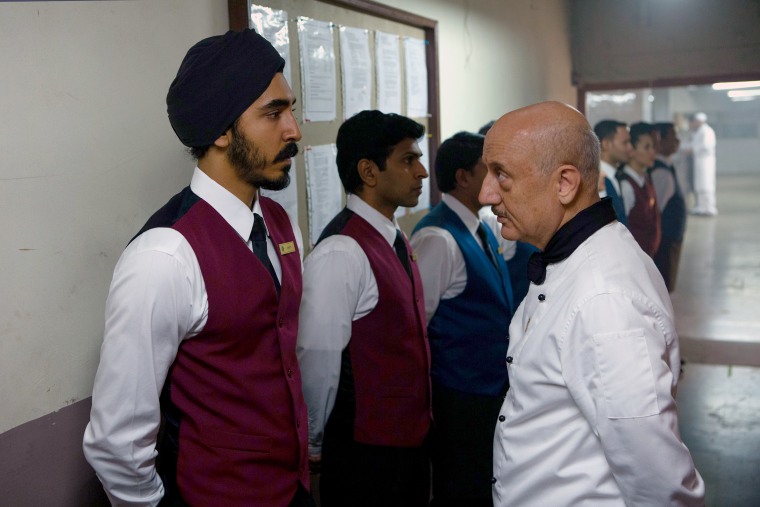On November 26, 2008, ten young terrorists from Pakistan invaded the sprawling Indian financial capital of Mumbai and over a period of three days wreaked unspeakable havoc on visitors and residents alike. Eventually 166 people lost their lives. At the center of this reign of terror was the sprawling, gilded Taj Mahal Palace Hotel, where the invaders took more than 1,000 guests and 500 employees hostage. That battle is now the focus of the gripping new film “Hotel Mumbai.” It has also become the nexus of a debate over the value of what could be called “terror porn.”
“The film is meant as an attempt to get inside that maelstrom and to have people understand what terror truly means,” the film’s director Anthony Maras told me recently. “It was intentional and it is difficult to watch because terrorism is a difficult subject. And you know it is quite punishing. I hope also that people can see on the other side of that blackness there is light and the light comes in the form of the Taj.”
That battle is now the focus of the gripping new film “Hotel Mumbai.” It has also become the nexus of a debate over the value of what could be called “terror porn.”
This is one of the central questions of “Hotel Mumbai,” but it also could be applied to any number of other genre films that have portrayed horrific terror attacks. There have been no shortage of such efforts over the past decade or so — from Paul Greengrass’s “United 93” in 2006 to Peter Berg’s “Patriot’s Day” in 2016 on the Boston massacre bombings to Greengrass’ “22 July” on the mass slaughter by Anders Behring Breivik in Norway.
SIGN UP FOR THE THINK WEEKLY NEWSLETTER HERE
With India heading the polls this April in the immediate aftermath of new tensions between India and Pakistan in Kashmir, this is an especially dark moment to pick again at the scab of Pakistan versus India, Muslim versus Hindu. Still, is there ever a really good time for such films?
Probably not. Yet, we must understand the context of terrorist attacks if we are ever to deal with them effectively. We must understand and get into the minds of both attacker and victims. This is so rarely done. Far more often, we turn terrorists into sneering cartoons — hardly an effective way to deal with their dark menace. Thankfully there are few caricatures in “Hotel Mumbai,” only very real people — victims and executioners.
So how much do we really learn from such recreations that we did not already know from blanket television coverage and the inevitable documentaries that quickly follow? In this case, the producers say they expended considerable effort, pouring over a thousand pages of transcripts of interrogations of the lone terrorist survivor and tapes of intercepts monitoring their interactions while the killing was in progress.
Moreover, this particular incident was itself unique — in its breadth, its length, as well as its ferocity.
“Many terror attacks, usually, are sudden,” Maras continued. “It's a bomb blast or a shooting and then we're left to deal with the aftermath. The dynamics of what occurred in Mumbai was such that this was protracted over 68 hours and because of that, you had you had stories that were more than just carnage. It was more than just someone turning up to a concert and getting shot. Because of this protracted nature of the attacks, ordinary people had to kind of rise up and be heroes, a term that is used flippantly a lot.”
How much do we really learn from such recreations that we did not already know from blanket television coverage and the inevitable documentaries that quickly follow?
For two nail-biting two hours, the anti-heroes seem to be winning. Of course, the tide will turn. But what will be left?
A host of questions certainly. With the very powerful emotions raised by “Hotel Mumbai,” and many other less thoughtful films in the same genre, the risk is that publicizing these events could simply re-inflame the underlying anger. In New Zealand, in the wake of the horrific terrorist assault on two mosques in Christchurch last month, “Hotel Mumbai” was pulled from theaters where it had already begun showing.
Although Netflix decided not to screen the film in India, there were already voices asking, as did the Deccan Chronicle in Hyderabad, “should the Indian censor board step in and clean the film to ensure that Muslims are not seen as the enemy.”
Despite the deep passions that still govern relations between the two nuclear-armed and volatile neighbors, Maras and others, including this author who has reported since the 1970s on the subcontinent, believe that there is value to these sorts of stories when retold with care. The hope is that shining an intense light on the consequences of such actions can become an antidote to terror.
